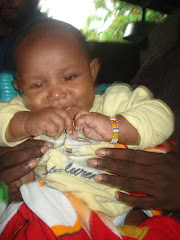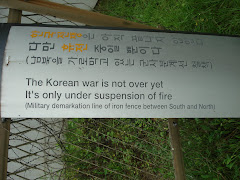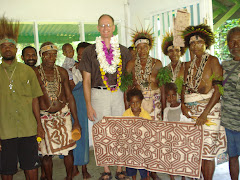Friday, December 12, 2014
And then. . .
I don't feel like giving a run down on all the things that have happened to me since my last blog entry. I wonder is there a category for "occasional blogger?" I hope I have earned a credential as non-compulsive (in this regard at least)!
Suffice it to say that in October I visited some Anglican religious communities in Cameroon and Tanzania (offering friendship and advice, not money). Then I travelled to England for an SSF Ministers pastoral Meeting, and followed this up with a wonderful stay at Glasshampton Monastery, our friary in Worcester, UK. I returned to New York the day before Thanksgiving.
If there was one major preoccupation in all of these visits and engagements it had to be about what makes the religious vocation flourish. In Africa the people we met were new at religious life for the most part. More than anything else they wanted connections with other Anglican religious. Conversations with them made me think about what I like and don't like about my life and where I perceive God's call.
Though we spoke a lot about structures and customs, this is not where I sense God's call.
Though we prayed in Latin, Swahili and English, God wasn't calling me in any particular language.
But in the shy looks of men and women who don't know what to say, I experienced God.
In the stories about a longing for a more serious, more beautiful life I heard the stirrings of the Holy Spirit, and experienced God.
In his poem "Church Going"Philip Larkin writes about how we "surprise a hunger in ourselves to be more serious," a hunger that "can never be obsolete."
In our SSF meeting we reaffirmed our love for the things that bind us together as an international Order: praying together, living together in fraternity and poverty, keeping a love for the poor in our hearts.
Buildings come and go, communities flourish and wither. New ways and new initiatives to respond to the persistent call of God are emerging all over the globe.
The danger is to think our way (whatever that is) is the only way. The Congregational Church had a terrific campaign a few years ago. A banner was displayed in front of our Mt. Sinai Congregational Church (along my usual jogging route): "Never put a period where God has placed a comma."
Religious life is, in the end, not just about organizing a comfortable or a theologically or ideologically agreeable community. During this Advent season we are reminded over and over again in the prescribed Bible readings that we exist to bear witness to God's presence in human community and the world. We are to bear witness to the ancient prophetic call of Isaiah and Jesus to stand for justice and peace. In America, and other places where my brothers live, basic human rights are challenged. We cannot relent in our efforts "to show others in his beauty and power the Christ who is the inspiration and joy" of our lives.
Suffice it to say that in October I visited some Anglican religious communities in Cameroon and Tanzania (offering friendship and advice, not money). Then I travelled to England for an SSF Ministers pastoral Meeting, and followed this up with a wonderful stay at Glasshampton Monastery, our friary in Worcester, UK. I returned to New York the day before Thanksgiving.
If there was one major preoccupation in all of these visits and engagements it had to be about what makes the religious vocation flourish. In Africa the people we met were new at religious life for the most part. More than anything else they wanted connections with other Anglican religious. Conversations with them made me think about what I like and don't like about my life and where I perceive God's call.
Though we spoke a lot about structures and customs, this is not where I sense God's call.
Though we prayed in Latin, Swahili and English, God wasn't calling me in any particular language.
But in the shy looks of men and women who don't know what to say, I experienced God.
In the stories about a longing for a more serious, more beautiful life I heard the stirrings of the Holy Spirit, and experienced God.
In his poem "Church Going"Philip Larkin writes about how we "surprise a hunger in ourselves to be more serious," a hunger that "can never be obsolete."
In our SSF meeting we reaffirmed our love for the things that bind us together as an international Order: praying together, living together in fraternity and poverty, keeping a love for the poor in our hearts.
Buildings come and go, communities flourish and wither. New ways and new initiatives to respond to the persistent call of God are emerging all over the globe.
The danger is to think our way (whatever that is) is the only way. The Congregational Church had a terrific campaign a few years ago. A banner was displayed in front of our Mt. Sinai Congregational Church (along my usual jogging route): "Never put a period where God has placed a comma."
Religious life is, in the end, not just about organizing a comfortable or a theologically or ideologically agreeable community. During this Advent season we are reminded over and over again in the prescribed Bible readings that we exist to bear witness to God's presence in human community and the world. We are to bear witness to the ancient prophetic call of Isaiah and Jesus to stand for justice and peace. In America, and other places where my brothers live, basic human rights are challenged. We cannot relent in our efforts "to show others in his beauty and power the Christ who is the inspiration and joy" of our lives.
Subscribe to:
Post Comments (Atom)






No comments:
Post a Comment